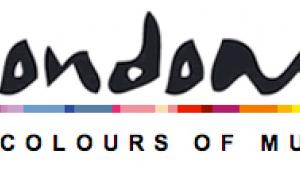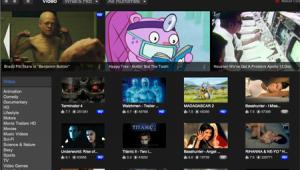Media Center Unity

UAV editor Scott Wilkinson has decided to expand and dedicate more coverage to this important and evolving category. In the near future, look for in-depth reviews on a variety of products that are designed to organize, manage, and play all your music and movies, whether they are from hard media or already stored on your computer.
Over the course of three days, I was overwhelmed by all the available systems. While each manufacturer can pitch all the reasons why its is the best, it was clear to me that every system has its unique strengths and weaknesses.
At present, only a handful of systems offer storage and streaming for video, because there are several obstacles in this regard. One important challenge is the sheer amount of storage space and streaming bandwidth you need, especially for high-definition video. But the biggest obstacle of all is that it's still illegal to rip copywrited DVDs and Blu-ray discs. To avoid the legal ramifications, several manufacturers have opted to make the best possible music server, but the future is calling and most are looking into what it would take to add video functionality. Then, there is the question of multichannel audio and which codecs to support, which presents an entirely new set of problems.
What I discovered is a lack of consistency from one system to the next. As an example, if you compare A/V receivers, particularly at a given price, you can expect they will all have certain features. However, a $10k media server will vary dramatically from one manufacturer to the next in terms of features, interface design, operability, and storage capacity. You have to do a lot of research to find the system most compatible with how you like to store and access your music and/or video since there is no standardization in the industry for this type of product.
On a hopeful note, the day before the Expo opened, a press release came over the wire announcing the Media Center Integrator Alliance (MCIA), which was created to provide systems integrators and manufacturers with the best practices and in-depth training for the technologies using Windows-based media centers.
This will be the industry's central point of contact for all things related to Windows-based media centers. The founding members of MCIA include AMD, Crestron, HP, Intel, Life|ware, Microsoft, and Niveus Media.
Many of the systems I looked at use proprietary interfaces, though several companies do prefer to use the Windows Media Center interface. Brian Paper of Niveus Media told me that his company chose to use the Windows Media Center ecosystem because a large company like Microsoft is more capable of developing timely software updates as technologies evolve. He also explained how the alliance is a way for manufacturers and integrators to discuss and share best practices for media integration using the Windows Media Center platform since no industry standard exists.
With the increased development of media-center technologies in the custom-installation market, MCIA hopes to use the contributions of all members to better facilitate these capabilities. By pooling their resources, MCIA members will establish industry standards and, hopefully, attract the interest, acceptance, and participation of many more companies.
The one thing Windows Media Center offers over other platforms is the ability to function as a digital-cable DVR and store recorded material directly on a computer's internal hard drive or an external server. In fact, manufacturers that support the Windows Media Center platform combine technologies from both the computer and consumer-electronics industries, such as powerful, energy-efficient CPUs, digital tuners, high-speed networking, and the latest in A/V technology.
The first device in this category slated for review here on UAV is the Sony Vaio TP25 Home Theater PC, which utilizes the Windows Media Center interface. Look for my evaluation later this month.




























































